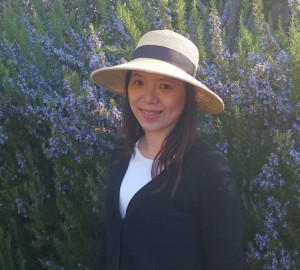Migrants facing challenges finding satisfying work
New migrants are finding it harder than they expect to find suitable work in Australia and low levels of English and a lack of local experience are the biggest barriers, a new study has found.
And the lack of support for jobseekers newly arrived to Australia can contribute to exploitation in the workplace, the study found.

New migrants like Jing Lin have struggled to find suitable work in Australia
The research, carried out by settlement agency AMES Australia, found job seekers with tertiary qualifications were the least satisfied with employment outcomes while those who arrived without qualifications were more likely to be satisfied.
Sixty-seven per cent of those surveyed in the study had a tertiary qualification before coming to Australia. Despite this, after four years most were working in factories, child or aged care or in customer service.
Titled ‘Finding satisfying work: The experiences of recent migrants with low level English’ the study found women experienced even greater challenges in finding work appropriate to their skills.
It found that four years after arriving in Australia, many women with tertiary qualifications and professional experience were working in jobs that did not use their skills.
The study, which surveyed English language students from diverse educational and employment backgrounds from 19 different countries, found that participants whose work in Australia drew on their skills and former work experience were more likely to be happy in their jobs than those working in unrelated jobs.
It pointed out that the proportion of migrants coming to Australia from non-English speaking countries is increasing and a significant number of people arrive with low levels of English.
Researchers Monica O’Dwyer and Stella Mulder said many migrants had already invested significant time and resources in tertiary education and training and that this was the case in each of the migration streams – including humanitarian refugee entrants.
“Most of the people we interviewed said that it took longer than expected to find any work at all in Australia – even at an entry level,” the researchers said.
“A significant period of unemployment or in highly insecure employment definitely put a dampener on people’s expectations of finding work more closely related to their training or experience – even as their English and familiarity with Australian workplace cultures increased,” they said.
“Others who did not have education and skilled background were more likely to find entry level jobs in Australia that was relevant to their expectations,” Ms O’Dwyer said.
However, she said not speaking English could put migrants at risk of not accessing basic entitlements in the workplace.
“Particularly working in situations where management speak English and the work does not require written and spoken language, there is a risk of exploitation,” she said.
The study found participants drew on family friends and community networks to find jobs.
“This means people were more likely to find entry level jobs, often in very small businesses where there is a big range in employment conditions – ranging from very good to very exploitative,” Ms O’Dwyer said.
She said there was a major gap in support for migrants once they had completed their 510 hours of federal government funded English tuition.
“Once they are actually out in the labour market, many people on skilled and family visas do not have anywhere to get the support that other new entrants to the labour market would get.
“For example young people can get job searching assistance through ‘Jobactive’, or through their training or education institution.
“It is also very challenging to get appropriate information and support in situations where employers really were exploiting their labour,” she said.
The study canvased 245 people newly arrived to Australia over four interviews between 2008 and 2013.
Chinese migrant Jing Lin has tertiary qualifications and arrived in Australia from China on a spouse visa in 2006.
She exemplifies a common migration pathway and like most people in the study she is eager to contribute to Australia socially and economically through employment, Ms O’Dwyer said.
Jing said she took a number of jobs below her qualifications initially because she felt under pressure to help make ends meet; she experienced some less than ideal working conditions in these jobs.
Following years in this type of employment, Jing, an accountant and auditor in China, did a TAFE course aimed at getting overseas professionals into their field of work and this was successful.
“Things were hard for the first few years in Australia and I struggled to get the sort of work that gave me satisfaction and a chance to get ahead. At first I could not speak English so it was hard.
“But now I have a full time, permanent job working in finance for a retail chain. I still think I can do a lot more but at least I have a full-time secure position, I want to do further study and get into more senior roles in the future,” Jing said.
“Jing’s story shows it can take a long time, requires lots of persistence to get to the point of having a suitable job where your skills are used,” Ms O’Dwyer said.
Laurie Nowell
AMES Australia Senior Journalist












